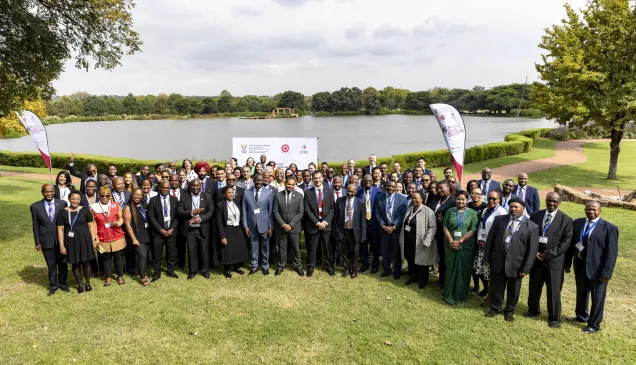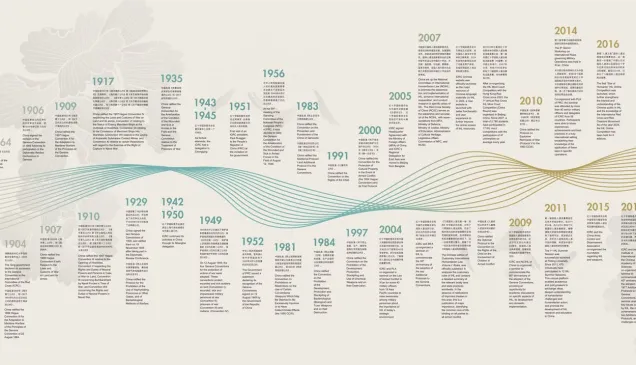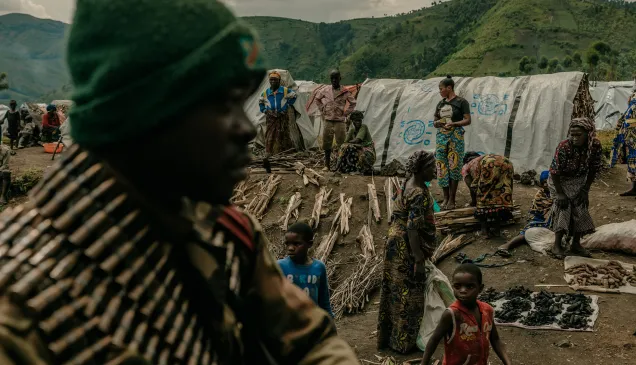China: Support relationships to promote IHL in focus at event co-hosted by ICRC and CIISS
On 23 February, the International Committee of the Red Cross (ICRC) and China Institute for International Strategic Studies (CIISS) co-hosted the launch of the Chinese translation of the book entitled Allies, Partners and Proxies: Managing Support Relationships in Armed Conflict to Reduce the Human Cost of War. Around 40 representatives of the Ministry of Foreign Affairs, the Ministry of National Defense, academia, think tanks, the ICRC and CIISS took part both online and onsite at the event.
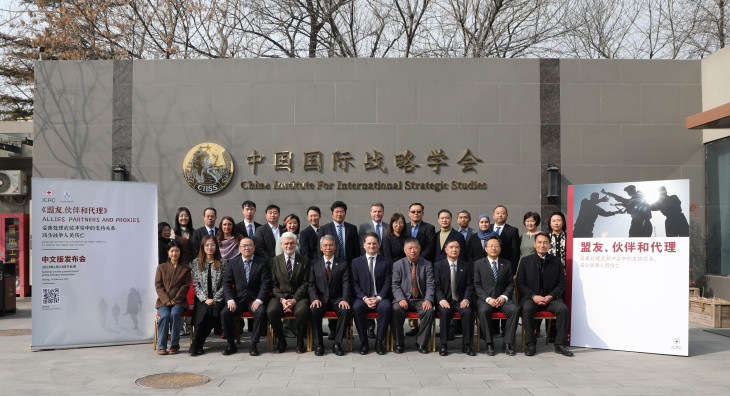
Allies, Partners and Proxies is an important tool of the ICRC's support relationships initiative (SRI), which works to support relationships that lead to increased respect for international humanitarian law. It presents a framework developed by the ICRC to encourage decision-makers to take a holistic view of support relationships and their humanitarian impact. The publication aims to create a full understanding of the stakes involved in support relationships and provides guiding questions for the decision-making process.
Delivering the opening remarks, Du Nongyi, vice-chairman of CIISS, stressed that the event was highly relevant to China's commitment to civilian protection and advocacy for resolving differences and disputes through dialogue and consultation. He also expressed his willingness to deepen cooperation with the ICRC in the future.
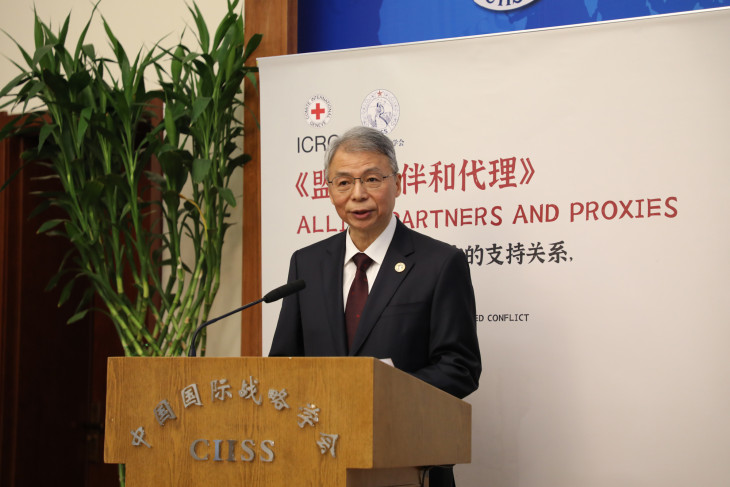
Du Nongyi, the vice-chairman of CIISS, delivers a speech at the opening ceremony. S. ZOU/ICRC
Pierre Krähenbühl, personal envoy of the ICRC president to China and head of the regional delegation for East Asia, pointed out that though wars continue to evolve, the human suffering inflicted by wars remains unchanged. As the ICRC marks its 160th anniversary, the organization continues to promote international humanitarian law. It's mandate, which is enshrined in the Geneva Conventions, is the basis for its long-standing relationship with China.
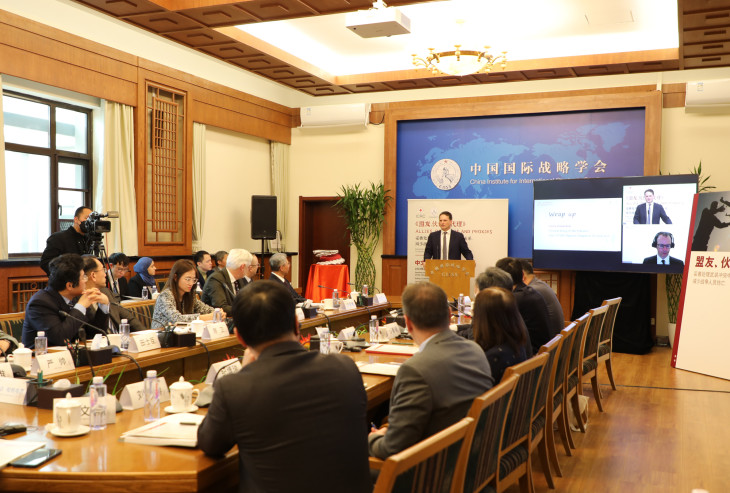
Pierre Krähenbühl, the personal envoy of the ICRC president to China and head of the regional delegation for East Asia, delivers a speech at the closing ceremony. S. ZOU/ICRC
Krähenbühl appreciated CIISS for investing in translating the book into Chinese and stressed that discussions on topics such as the complexity of the battlefields, volatile geopolitical contexts and reflection on future trends are crucial for further cooperation.
Thomas Hallier, who heads the ICRC's support relationships initiative, joined the event online from Geneva and elaborated on the book's key concepts as well as the rationale of the unit. He also engaged with participants during a Q&A session, helping them to move from concepts to practice. The discussion on issues of mutual interest aimed to enhance civilian protection and reduce the human cost of armed conflicts.
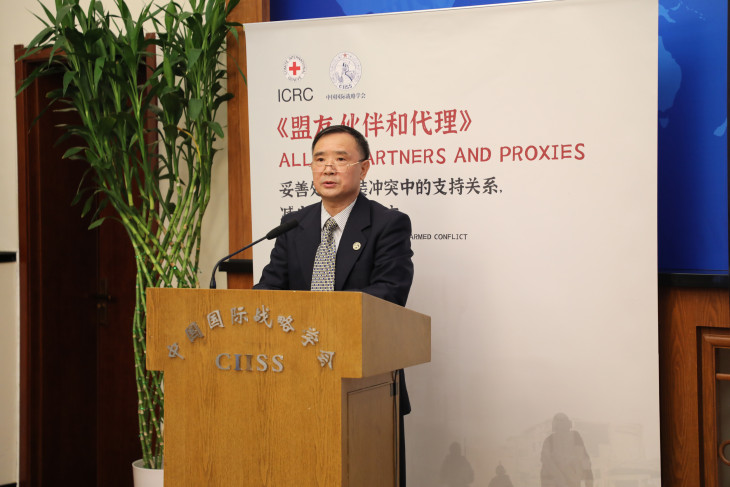
Calling the book an important reference document, Jing Chunlu, a senior research fellow of CIISS, commended the ICRC publication for its in-depth analysis and for providing a theoretical basis for managing support relationships in armed conflict.

Snowy Lintern, armed forces delegate of the ICRC's regional delegation for East Asia, highlighted the initiative's relevance to China in terms of political support, arms transfers, partnered military operations, private military and security companies, etc.

